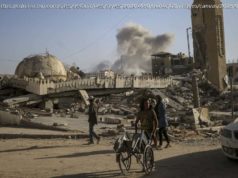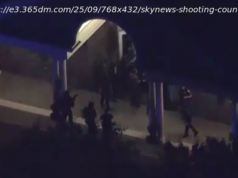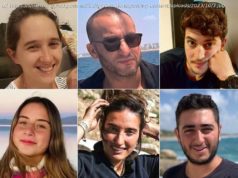The disaster, which killed at least 400 people, awakens painful memories of past national traumas: the Ebola outbreak and Sierra Leone’s civil war.
DAKAR, Senegal — With some 400 bodies recovered from the mudslides and flood that devastated Sierra Leone ’s capital, Freetown, the dead are being buried in mass graves.
The coordinator for the burial team, Mohamed Kamara, said that 320 people were buried on Tuesday afternoon in two graves at a cemetery in Waterloo, on the outskirts of Freetown.
“We don’ t have enough manpower to dig single graves for all the bodies; we have to bury them in mass graves, ” Mr. Kamara said.
He said that more bodies awaited burial and that he had instructed his crews to prepare four more large graves.
The burials awakened memories of other national traumas — the Ebola outbreak and the long civil war that ended early in this century — in which victims were interred in a similar fashion.
At least 400 people were killed in the disaster, and hundreds more are still missing. Many people were trapped in buildings and vehicles, and thousands were left homeless.
On Wednesday, thousands of people gathered outside the morgue at Connaught Hospital in Freetown, hoping to find the bodies of their relatives. Long lines formed in the drizzling rain as groups of about 50 were given protective gear and allowed to enter.
The visitors were asked to switch off or put away mobile phones and warned not to photograph the dead.
Thomas Benson, 30, said he had lost nine of his relatives. In the morgue, which he said contained hundreds of corpses, he found himself standing over the body of a boy who was missing a limb. He looked closer and realized it was a nephew. Later, he found the body of his sister, the boy’s mother, and an uncle.
Mr. Benson said the bodies were later handed over to him for private burial.
“Thank God they let us take these ones, ” he said. “Even with their decomposed bodies, we would have buried the others on our own in a dignified way.”
Mary Sesay lost a sister and two brothers. She said that after hours of standing in line outside the morgue, she and several others were denied entry because it was no longer safe.
“They said because of the condition of the bodies, they will go ahead and bury the bodies, ” Ms. Sesay said. “I just want to see them for the last time, even if they won’ t let me take their bodies away.”
John James, the head of communications for Unicef in Sierra Leone, said on Wednesday that his organization had donated 1,000 body bags to the Ministry of Health in an effort to facilitate “a dignified” burial process.
He said his organization had also provided mattresses, water tanks, water storage facilities and temporary toilets for displaced victims who are housed in schools, churches, mosques and other temporary shelters.
“The potential for infectious diseases like cholera is our biggest concern, ” Mr. James said. “The water infrastructure has taken a big hit, and the dirty water that swept through the city, and the potential for further undiscovered corpses, heightens the risk, particularly for children.”
Several other organizations have joined the relief efforts in the country.
Idalia Amaya, the emergency coordinator for Catholic Relief Services, said that in order to “avoid repeating the trauma” people experienced during the Ebola outbreak, her organization and others were providing support to burial teams, with the hope that other victims would be buried individually.
“The people of this country have suffered from a bloody civil war, then cholera, later Ebola and then this mudslide, ” Ms. Amaya said. “It will be too much for them to have their relatives buried in mass graves again.”






